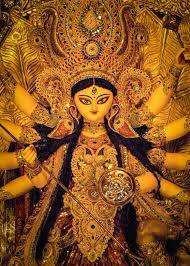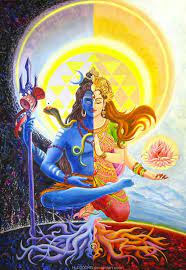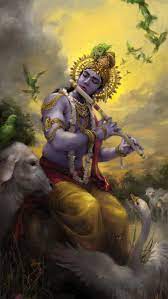
Exploring the Divine: An Introduction to Hindu Gods and Goddesses
Hinduism is one of the world's oldest religions, with a rich tapestry of beliefs, rituals, and practices that have evolved over thousands of years. At the heart of Hinduism are its deities – a diverse pantheon of gods and goddesses, each with their unique attributes, stories, and significance. In this blog, we will embark on a journey to explore the divine world of Hindu gods and goddesses, gaining insight into their roles in Hindu mythology and the profound impact they have on the lives of millions.
The Hindu Pantheon
Hinduism boasts a vast and intricate pantheon of gods and goddesses, each representing different aspects of the divine. While there are literally thousands of deities in Hinduism, a few prominent ones stand out, and we will focus on some of these.
- Brahma

Known as the Creator, Brahma is often depicted with four heads, each symbolizing one of the four Vedas. He is responsible for the creation of the universe and all living beings. Despite his importance, Brahma is not widely worshipped in Hinduism.
- Vishnu:

Vishnu is the Preserver or Sustainer of the universe. He is often depicted with blue skin and four arms. Vishnu incarnates on Earth whenever there is a threat to the balance of the universe, in forms like Rama and Krishna. Devotees worship Vishnu to seek protection, peace, and preservation.
- Shiva:

Shiva, the Destroyer, is one of the most complex and revered deities in Hinduism. He is depicted with ash smeared on his body, a snake around his neck, and a third eye on his forehead. Shiva represents both destruction and regeneration, making him a symbol of transformation and spirituality.
As the Goddess of Wealth and Prosperity, Lakshmi is often depicted with lotus flowers and coins. She is worshipped to seek wealth, abundance, and good fortune.
- Saraswati:

Saraswati is the Goddess of Knowledge, Arts, and Wisdom. She is usually depicted playing the veena (a musical instrument) and is revered by students, scholars, and artists seeking creative inspiration and wisdom.
- Durga:

Durga, the Warrior Goddess, is celebrated during Navratri. She is depicted riding a lion and is known for her fierce form, slaying the demon Mahishasura. Devotees pray to Durga for strength and protection from evil.
- Ganesha:

Ganesha is one of the most beloved and recognizable deities with an elephant head and a human body. He is the Remover of Obstacles and the Patron of Arts and Sciences. People often seek Ganesha's blessings before beginning any new endeavor.
- Krishna:

Lord Krishna is a central figure in Hinduism, known for his teachings in the Bhagavad Gita and his youthful exploits. He represents love, devotion, and the pursuit of spiritual truth.
Significance and Worship
The worship of Hindu gods and goddesses plays a vital role in the daily lives of millions of Hindus. It goes beyond mere rituals and extends to a deep spiritual connection with the divine. People turn to different deities based on their needs and aspirations. For instance, students may pray to Saraswati for success in exams, while those seeking love and companionship may turn to Radha and Krishna.
Temples dedicated to various deities can be found across India and in Hindu communities worldwide. These temples serve as places of worship, reflection, and cultural gatherings, reinforcing the importance of the deities in people's lives.
Conclusion
The world of Hindu gods and goddesses is rich and diverse, reflecting the complexity of human existence and spirituality. These deities are not just symbols or legends; they represent aspects of the divine that guide and inspire millions of people on their spiritual journeys.
Exploring Hindu gods and goddesses is an invitation to delve into the profound wisdom, symbolism, and mythology that have shaped Hinduism for millennia. It's an opportunity to appreciate the multifaceted nature of divinity and the ways in which these deities continue to impact the lives of those who turn to them for guidance, protection, and spiritual fulfillment.
Author Nishita Khanna

